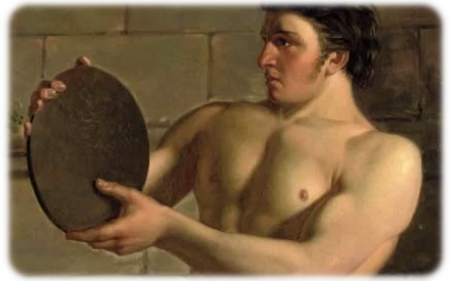Sorodiscus

Robbins and Braselton (1997) compared Sorodiscus callitrichis and S. cokeri and recommended that S. cokeri be renamed Woronina cokeri.
Note that the following paper incorrectly named Membranosorus heterantherae as a species of Sorodiscus: Wernham, C. C. 1935. A new species of Sorodiscus on Heteranthera. Mycologia 27: 262-273.
Personal Comments
Sorodiscus provided some exciting and interesting travel for me. I wanted to compare it to Membranosorus, and preferred to get material for my studies from sites where it originally was collected. In the summer of 1986 I went north of the Arctic Circle to Tromsø, Norway, and eventually worked my way down to the southern tip of Sweden. In Norway, with the help of Harald Mehus of the Tromsø Museum, we found Callitriche in areas near where infected specimens had been collected in the early 20th c, but we could not find any with infections. I had similar bad luck locating infected Callitriche in southern Sweden later in the trip. Although on this trip I failed to collect samples of Callitriche infected with Sorodiscus, contacts I made would eventually pay off in two years.
On the first trip to Scandinavia I collected Tetramyxa successfully (see Tetramyxa page) in Finland, so the trip was not a total bust scientifically.
It was quite an experience to see the midnight sun. All of Scandinavia also was fantastic. The places I visited in each country were beautiful and the people were friendly and helpful.
After my first trip to Sweden in 1986, I received a letter from a graduate student, Karin Martinsson, at Uppsala University. She was studying Callitriche in Sweden and had heard from our contact in Lund that I was looking for Callitriche that had galls. My second visit to Sweden in the summer of 1988 led, with the help of Karin, to collection of infected plants of Callitriche near Klippan.
Once we had collected Callitriche, Karin recommended I see Kalmar, Sweden, where she dropped me off on her way back to Uppsala. The little cottage I rented for a week in Kalmar was delightful, and I was able to fix and embed the material for electron microscopy while there. After the material was embedded in epoxy plastic, there was no problem bringing it into the USA.
When I started looking at Sorodiscus with both light and electron microscopy, I could not understand how anyone could confuse it with Membranosorus or vice versa. The sporosori are very different, and the resting spores themselves are different. I also gained admiration for the artwork in Karling's The Plasmodiophorales. The illustrations of both Membranosorus and Sorodiscus are excellent. As with most of his book, Dr. Karling took great care in representing the material in an accurate way.
Images of Sorodiscus
- Sorodiscus site in Sweden
- Sorodiscus sporosori, LMG
- Sorodiscus sporogenic plasmodium, TEMG
- Sorodiscus survey of pachynema, TEMG
- Sorodiscus synaptonemal complex, TEMG
Selected References for Sorodiscus
- Cook, W. R. I. 1931. The life-history of Sorodiscus radicicolus. Ann. Mycol. 29: 313-324.
- Ghemawat, M. S. 1964. Sorodiscus radicicolus Cook, a new record for India. Indian Phytopathology 17: 165-167.
- Goldie-Smith, E. K. 1951. A new species of Sorodiscus on Pythium. J. Elisha Mitchell Sci. Soc. 67: 108-121.
- _____. 1956. A new species of Woronina, and Sorodiscus cokeri amended. J. Elisha Mitchell Sci. Soc. 72: 348-356.
- Martinsson, K. 1987. Gallbildningar på Callitriche. [Fungal galls caused by Sorodiscus callitrichis.] Svensk Bot.Tidskr. 81: 334-336.
- Robbins, R. K. & J. P. Braselton. 1997. Ultrastructure and classification of the genus Sorodiscus (Plasmodiophoromycetes). Mycotaxon 61: 327-334.